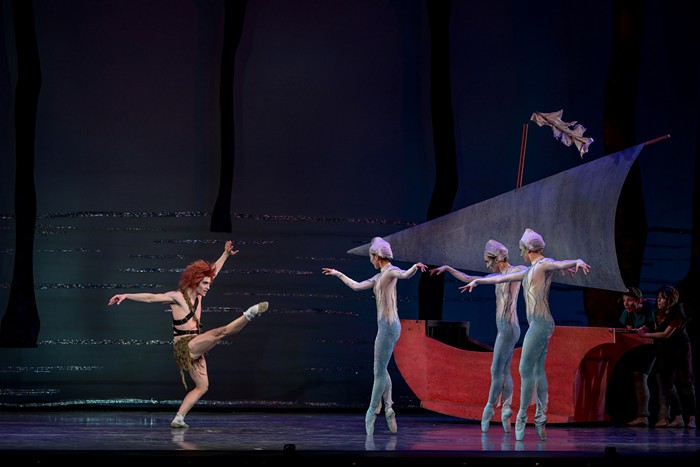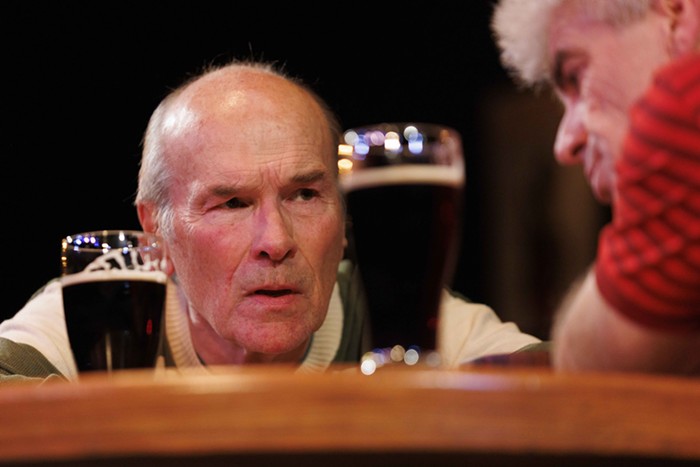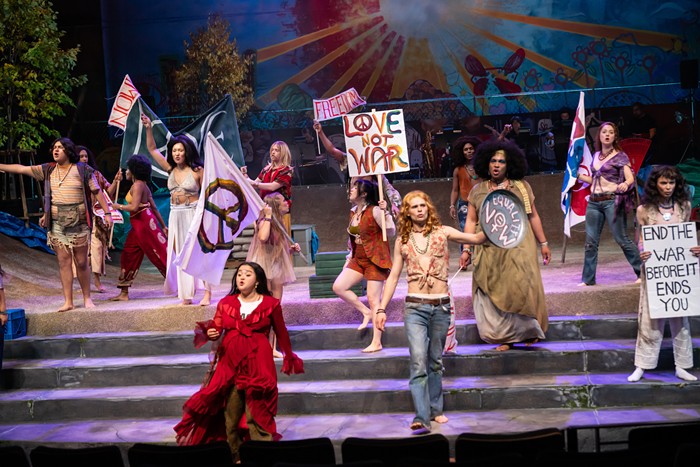Glen Berger
Writer of Underneath the Lintel, opening Fri Sept 30, 8 pm at Portland Center Stage, 1111 SW Broadway, 274-6588, runs Tues-Sun through Oct 30, $15-56
Glen Berger's O Lovely Glowworm, produced last spring by Portland Center Stage, was a fantastical journey through the mind of a blind stuffed goat, ruminating from its sad perch atop a rubbish heap in Ireland, circa 1918. With this singularly weird narrator as the guide, it was not surprising that a dreamy slew of mermaid romances, World War I theatrics, and songs sung by the inventor of the flushing toilet ensued; what was surprising was how beautifully these disjointed parts flowed into a coherent whole, and how hilarious, poetic, sad, and exhilarating that whole truly was.
PCS liked Glowworm so much they brought Berger, a New Yorker, back for another go-around. His one-man play, Underneath the Lintel, kicks off their 2005/2006 season this week, with actor Time Winters playing an anonymous librarian committed to tracking down the borrower of a book that was returned 113 years overdue. Upon hearing that premise, I became committed to tracking down Berger...
How does one decide to write a one-man show?
I didn't ever want to write a one-person show unless I could think of a legitimate context for the character to be speaking to the audience that night—you know, a good reason other than "let me tell you about myself." And I think in general they are easier to write. The more characters you have, the more relationships you have to deal with.
The difficulty of writing is part of your persona as a writer. One of my favorite things about the Portland production of O Lovely Glowworm was your program notes about the arduous task of writing it.
I had started writing those notes when I was in the depths of a horrible block and I thought Glowworm was going to get me out of it and I thought [the notes] would be a great primer on how I got out of [the block]. Lentil, as it turns out, was a lot easier to write than anything else I've ever written. I don't know why. Usually in my writing process I think I have this great idea that will write itself, and then some incredibly intractable problem shows up. That didn't happen this time.
Both Glowworm and Lentil occur in very specific European settings—atop an Irish rubbish heap and in a library in Holland, respectively. Do you have a special connection to those places and their histories?
History and geography are an artist's playground, so why limit oneself to here and now when there's all of history beckoning? I start writing a play usually after hearing some sort of music that suggests a particular location or landscape of the mind. With Glowworm it was these old 78s of Irish tenors and with Lentil it was 1920s Klezmer music.
How does the sound of a certain music style get transformed into a play?
I hear a piece of music and it just says that there's a story in it. I usually make a mix tape before I begin writing so even after I've totally ripped up the 13th draft of the play and think this is a terrible idea I can put on the mix tape and think, "No, no, no, it wasn't a terrible idea because listen to that—the play is right there and it's awesome!"
Bret Fetzer, a critic for the Seattle Stranger once wrote, "Glen Berger's work feels like what an entire generation of playwrights have been struggling to write." What is that elusive thing that your playwriting generation is struggling to do?
I sense this sort of struggle to find sincerity. It's not just family dramas anymore. It's trying to put civilization in the context of the universe and time and the rest of it. I think there is a more ecological worldview too. We can't ignore anymore the fact that there are 100 million other species on the planet right now and we are one of them. Like those moments in Shakespeare, when you're in the middle of the drama and suddenly he pulls you way up into space and you see these little insects, these dung beetles pushing their little dung about, and then you zoom back in again and realize that this incredibly intense close-up drama you've been watching couldn't be smaller in the grand scale of things. I feel like this generation is doing that sort of thing a lot more instinctively than in the past.


















